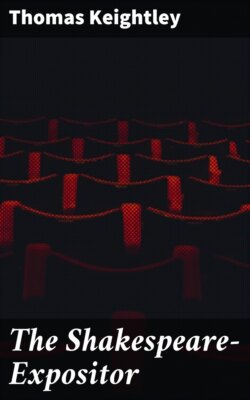Читать книгу The Shakespeare-Expositor - Thomas Keightley - Страница 50
На сайте Литреса книга снята с продажи.
5.
ОглавлениеNotwithstanding all this, there are editors of Shakespeare who, rejecting the evidence of sense, grammar, and logic, obstinately adhere to the printed text, terming that alone authority, and even holding the second and later folios to be such; and it is really pitiable to see them superstitiously retaining for instance 'tis or it's when the metre requires it is, and syncopated forms as lov'd, own'd, etc., when the verse has need of the complete word, and vice versâ. These I denominate Printer-worshipers; for it is in reality to the authority of the printer, not of the poet, that they bow. The most extraordinary instance of this propensity in existence is the retention of "strain at a gnat" in our authorized version of the New Testament, a most manifest printer's error; for no schoolboy could have made it in translating, and in all the previous English versions the word is out. Yet there it has stood uncorrected for two centuries and a half! Hardly inferior as a piece of printer-worship is the following. A stanza of a song in Fletcher's Spanish Curate (ii. 5) ends thus:
From that breath, whose native smell
Indian odours far excel,
thus expressing the very contrary of what was meant! Theobald, a true critic, therefore most properly added doth—in the wrong place, however, as it should begin the line; yet Mr. Dyce says, "the old text is doubtless what the poet wrote"!!
To conclude, then, if the printed text cannot be made to yield sense the fault must lie, not with the poet, but with the transcriber or the printer, and a correction, made in conformity with the language and mode of thinking of the poet and his time, as it may give what he wrote, or may have written, should be admitted into the text. I must here, en passant, impress it on the reader as a maxim, that no word should be used in correction that is not to be found in the poet himself, or in his contemporaries.
